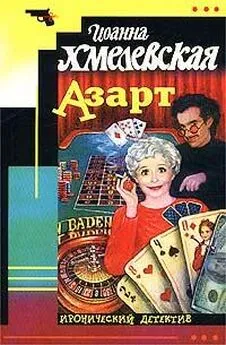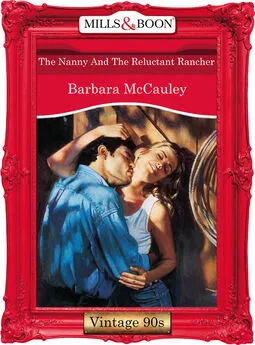Barbara Hambly - Dead water
- Название:Dead water
- Автор:
- Жанр:
- Издательство:неизвестно
- Год:неизвестен
- ISBN:нет данных
- Рейтинг:
- Избранное:Добавить в избранное
-
Отзывы:
-
Ваша оценка:
Barbara Hambly - Dead water краткое содержание
Dead water - читать онлайн бесплатно полную версию (весь текст целиком)
Интервал:
Закладка:
When I find Hannibal Sefton, I'm going to wring his neck for him.
Ahead on his right he could see lights: the long, ramshackle shed known locally as The Rough and Ready. Lantern-light glowed ruby through the cheap calico that comprised one wall, and like a shadow-play January saw men leap up from the makeshift card-table, cursing like the Devils in Hell. The next moment one man was hurled through the fabric wall, bringing the whole of it down with him.
Women screamed. A large gentleman in buckskins collided with the bar, which, being only planks laid over barrels, collapsed, and the barkeep rushed into the crowd laying about him right and left with a nail-studded mahogany club. A squad of hairy Kaintuck boatmen charged the barkeep with fragments of the benches, and January silently moved on.
The Keelboat Saloon lay to his left, on the edge of a vile-smelling bayou. Its customers nearly trampled January as they rushed toward The Rough and Ready to take part in the fight—it was a slow night, and he supposed one had to take one's entertainment where one found it. The Keelboat was even less salubrious-looking than The Rough and Ready, a dirty wooden box with lines of orange light leaking through its sides. A good kick would bring it down. But January kept on his course for the place, for he heard in the blackness of the steamy night what he'd been seeking: the wild skirl of fiddle music, like a drunken Irish angel embroidering golden fantasias on a Mozart ballet.
January closed the lantern-slide and waited in the trees, knowing that in time someone would come out to whom—if he was careful—he could speak. A black man who walked into a saloon anywhere in town risked being beaten up. Even in the elegant establishments of Rue Royale, he would not dare to be seen to raise a hand against a white man in his own defense; here, such an action would no doubt result in an unpleasant and messy death.
So all he could do was wait, the mosquitoes whining as they tangled up in the veils around his hat and the occasional cicada or palmetto bug blundering into the lantern on roaring wings. He wondered if the gator was still around.
Three burly shapes crashed through The Keelboat's door and ran past January in a reeking backwash of chewing tobacco and clothing months unlaundered; one of the local girls was with them, holding up her skirts to her knees and laughing.
The music stopped mid-bar.
A moment later Hannibal Sefton appeared silhouetted in the weak orange rectangle of the doorway, violin in one hand and a brown bottle of whiskey in the other.
“ They flee from me, that sometime did me seek, ” he quoted plaintively, and took a long pull from the bottle. “But I have seen them, gentle, tame and meek / That now are wild. . . . ”
He looked at the bottle, sighed, and turned back into the building.
January emerged from behind his tree and crossed to the shack, sprang up the steps to the door.
As he'd suspected, the saloon was empty.
“Don't tell me you actually drink the liquor this place serves.”
Hannibal was in back of the bar, replacing the bottle behind a loose board in the wall. “Good God, no! I may be a sot, but I'm not a fool. Old Hunks was charging a Santa Fe trapper fifty cents a shot for this on the grounds that it was Scots single-malt.”
He straightened up in the grimy lamplight, resembling a disheveled elf with his long hair straggling out of its old-fashioned pigtail over his back, and his eyebrows standing out dark against his thin white face. “ Thou shalt not muzzle the ox that treadeth out the corn . . . . But of course it's just the same bilgewater Hunks dips out of the barrel for a picayune a cup. . . . What are you doing here, amicus meus ? If you're seriously looking to get yourself killed, I'll offer you a drink. . . .”
“There are better ways to die,” responded January with an exaggerated shudder.
“And being in this room when the refined clientele returns is one of them,” retorted Hannibal. “Let us retire to my quarters. Nothing amiss with the owl-eyed Athene, I hope?”
And as Hannibal limped over to the shaggy, out-of-fashion beaver hat that stood by his chair to receive whatever contributions his audience cared to give, January grinned at the nickname his friend had given the bespectacled Rose.
“I must say I am cut to the quick to find my art playing second fiddle, as it were, to a bout of not-very-efficient fisticuffs,” Hannibal added as he dumped a few Spanish reales, a British shilling, two American half-dimes, and three eleven-penny bits into his hand. “But at least I can get out of here with all my takings this evening instead of having one of the customers relieve me of them ten feet from the door.”
Small heaps of money lay on the room's single table amid a scattering of cards, and presumably there was a cashbox in the same cache as the so-called “single-malt Scotch.” But these Hannibal ignored as he wrapped his violin in its usual swaddling of faded silk scarves and tucked it into its case.
“If you're getting robbed every night, why do you stay?” January glanced right and left as they emerged from the saloon's rear door, though in the pitch-black night a platoon of club-wielding Kaintucks could have stood within four feet of The Keelboat unseen. Undetected by any other sense as well, for that matter, for the ambient stench of privies would have covered the collective tobacco-reek of the average boatman, and the combined roar of the cicadas and the hollers of the fight still in progress at The Rough and Ready would have masked any sound.
The ground squished under January's boots, and something moved—cat, rat, or gator—in the tangle of hackberry that surrounded the building's rear.
“Old Hunks lets me sleep in one of the cribs.” Hannibal led the way to a sort of long shed that stood behind the saloon, three of its four French doors open into mephitic blackness. The usual inhabitants of the rooms—and their customers—were presumably at the fight as well.
“It's exceedingly generous of him, considering how much he makes per night out of each room. He's from Dublin, and so regards me as a brother. He worked for years as a doorkeeper at the Covent Garden Opera in London. Sometimes after the place closes down for the night, I'll play on for him for hours.”
He opened the door of the fourth crib—none of them had locks—and held January's lantern inside for a moment before entering. Two rats retreated unhurriedly through a crack in the wall. The room was windowless but so rudely put together that in daylight there would have been plenty of light, ventilation, and—to judge by the careful arrangement of old tin pots and broken jars about the floor—almost certainly rain.
“Besides,” the fiddler went on, flicking a roach the size of a small mouse from the candle-holder and angling the candle to the lantern's flame, “I defy you to name an establishment in town this summer where you wouldn't be robbed. Everything respectable has closed down. Even the folks out in Milneburgh aren't holding many cotillions this year.”
January, settling himself on the goods-box that held most of Hannibal's books, had to agree. In former years, summers had been slow times, but every week or so there would be some banker or sugar-broker or town rentier hosting a ball in one of the big hotels by the lake. This year so far they had been few.
“You're lucky that you haven't had to rely on your music this year to butter your bread.” Hannibal produced from another goods-box a small bottle of sherry and a square black one of laudanum. He measured a tiny amount of the one and a tinier dose of the other into a tin cup and drank it down. “In honored poverty thy voice did weave / Songs consecrate to truth and liberty . . . ” After a moment's thought he took another fast sip of the laudanum alone, then stoppered both bottles and put them away. “What's happened? And how can I help?”
“I'm glad you asked.” January outlined for him what Hubert Granville had said about the absconding manager of the Bank of Louisiana, and about the need for secrecy that precluded enlisting the City Guards until hard evidence was secured.
“What I need,” said January, “is a master aboard the Silver Moon . A free black man traveling by himself draws comment. A slave is invisible, and I need to be invisible. In some circumstances a slave is safer than a free black man,” he added with a bitterness that had turned to irony over the years. “At least someone's going to complain if a slave disappears. And having a white man along to deal with the local authorities when we do find which trunks contain the money will be a help, too. Granville's paying us five hundred dollars.”
“In Bank of Louisiana notes?”
January laughed curtly. “Dryden says that when a man takes a wife and fathers children, he gives hostages to fortune. Disaster falls, not only on his head alone, but on the heads of those he loves. Rose and I have the chance to be something, to have something, to make something, rather than scraping along on what I can earn playing the piano for quadroon balls and what she gets translating Greek texts for booksellers. You can't go on all your life that way. It does something to you, as time wears on.”
He stopped, looking around the seedy darkness of the room, with weeds growing up through the cracks in the board floor and roaches spotting the wall behind the candle flame. Looking at Hannibal's face, thin with a lifetime of illness and pain, and at the long, sensitive hands in the frayed cuffs.
The fiddler's grin was wry under his graying mustache. “To save you and Athene from the life I daily live, amicus meus, I will gladly play the despot and spend my days in the company of tobacco-spitting Americans in a steamboat saloon—particularly at the Bank of Louisiana's expense. I think I have a shirt in here somewhere that will not violate the personation of a man with enough money to own a slave.”
On the other side of the thin partition wall, January heard a man curse in English, followed by a woman's protesting drawl, “Just gimme a minute. . . .” Bedropes creaked mightily.
“The fight must be over,” January opined.
A huge and comprehensively drunk boatman loomed suddenly in the doorway. “Look out, beautiful, 'cause here comes the very child that coined the name of Thunder! Cock-a-doodle-do!” He let fall his trousers, at which Hannibal promptly began to applaud.
The boatman retreated in confusion.
“Happens every week,” sighed the fiddler, pulling his valise from under the bed. “I've tried chalking NO GIRLS HERE on the door, but that doesn't seem to work either . . . and it doesn't help that occasionally one of the girls will entertain a customer here while I'm playing up front. . . .”
Shouts of laughter outside. “You done already , Kyle? I got me a pet jack-rabbit takes more time than that !”
“A man can live in this fashion for a time.” Hannibal sighed, fishing in yet another goods-box for his few shirts of threadbare linen. “A long time, in my case. And a strong woman can endure it for a few years. But as the playwright says, Money is the sinews of love, as of war . Poverty can break a marriage, and I love you and Rose too much to want to see you turn on each other, as the poor so often do, and your happiness vanish for want of hope.”
He tossed in his shaving tackle and three half-empty bottles of opium and sherry. “So it remains only to arm myself, like Prince Achilles before the walls of Troy. The silver cuishes first his thighs infold; Then o'er his breast was braced the hollow gold . . . .”
Читать дальшеИнтервал:
Закладка:








